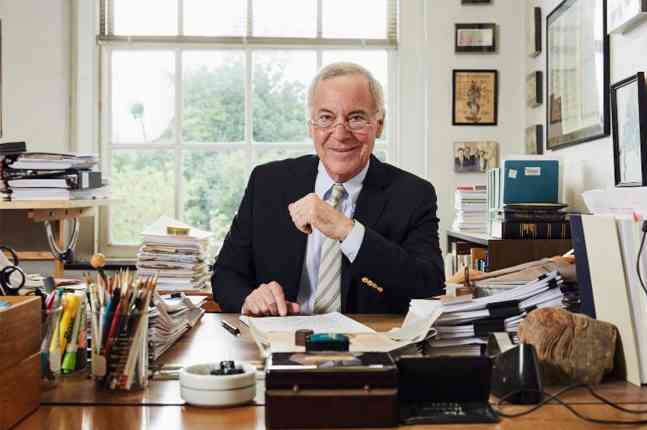
AMERICAN economist Steve Hanke (pictured) must be on ‘Cloud 9’ right now.
In September 2022, the Zimbabwe Economic Society was hosting its regular monthly virtual meetings where Hanke was a guest.
During the discourse, Hanke pointed out that the real bane in fixing the currency crisis was the Reserve Bank of Zimbabwe (RBZ).
“The central bank cannot extend credit to the government, and it did not do so under those unity government years and that is why the budget was more or less balanced. It became controlled. So that is one possibility and an obvious one because Zimbabwe is effectively, spontaneously, dollarised anyway,” he said.
Thus, he proposed a solution.
“So, if they officially did it and got rid of the Reserve Bank that would be a big plus. You got to get the Reserve Bank out of the picture. The Reserve Bank is a real problem and that is one reason, by the way, that dollarisation went away after the unity government collapsed in 2013 because the central bank was there, ready to go, and they have done nothing but bad things ever since.”
Hanke said the central bank was funding quasi-fiscal activities, amid no economic growth, thereby fueling inflation.
Fast-forward to this month, the International Monetary Fund (IMF) suggested that the RBZ Act should be amended, including to narrow its legal mandate to core functions.
- Rampaging inflation hits Old Mutual . . . giant slips to $9 billion loss after tax
- Monetary measures spur exchange rate stability: RBZ
- Zim deploys IMF windfall to horticulture
- Banker demands $21m from land developer
Keep Reading
If the government had listened to Hanke, maybe the Zimbabwe dollar would have not depreciated by a huge margin like now.
Further, if Hanke’s advice had been heeded, maybe the money supply would have not ballooned by nearly 887% from that time to ZW$18,91 trillion as of the end of last year.
To make matters worse, the government long shot down the creation of a currency board to manage the mechanics behind the economy.
Finance minister Mthuli Ncube has indicated that they are now seriously considering a currency board.
“I totally agree with the observation by the International Monetary Fund,” economist Prosper Chitambara told the newspaper.
“It is obviously in line with what I have always believed and always advocated for which is that we need to tighten the RBZ through tightening the Act so that at least it is more independent and more autonomous.”
He added: “That will actually help in ensuring there is macroeconomic stability. When you look at nations where the central bank is strongly independent and autonomous, they also tend to perform well with respect to macroeconomic stability or indicators of macroeconomic stability.
“So yes, we need to tighten the RBZ Act, but we need to make the central bank very independent, more autonomous, and wean it off political influences and pressures.”
For years, the government officials have been accused of abusing the RBZ for selfish reasons which has contributed to it becoming a ‘money printing machine’ for elites, fuelling corruption.
“The issue is not just about the RBZ as an entity,” economist Godfrey Kanyenze said.
“We need to look at all our institutions and the way they operate. There is so much political expediency that goes ahead of technical expertise. So, I think the political culture that drives, provides the context in which these institutions operate is the one that needs to change.”
“It’s the one that needs to recognise that institutions are very critical sources of growth and hence in any area of responsibility, the institutions that are in that specific area must be given the prerogative to take the leading role in their respective areas of mandate. So, the key challenge now, as what the IMF is saying, is that the RBZ must be allowed to do its work and go back to its core business.”
He said the challenge with the RBZ is that they were working under the political culture, not as a separate or independent entity and that it was that political culture that essentially ran the central bank.
Some years back, a source told this publication that both the RBZ and Treasury were not run by the governor or the finance minister, respectively, but rather by the Presidium.
“It’s a culture that the governor may not have the will to say no too. So, we are saying, and what the IMF is saying is that it is the political context,” Kanyenze said.
“The role of those that basically see the Reserve Bank playing other roles like quasi fiscal roles that are not core to its business. So, if we focus on the RBZ, I think we get it wrong because it’s the RBZ itself that has basically no capacity to reform itself and drive a political agenda.”
He said that even talk of the currency board that the Treasury had been talking about will not have the autonomy needed to succeed.
“What makes you think in the currency context that a currency board will be given the autonomy the Reserve Bank is not getting? It’s the culture and the way we do business,” Kanyenze said.






